
Combining the two Italian ESP/BASE LPs from 1982 and the 1995 ESP reissues, this spectacular concert with perhaps Ayler's most essential band--Ayler on tenor sax, Donald Ayler on trumpet, Michel Samson on violin, Lewis Worrell on double bass and Ronald Shannon Jackson on drums--is fully remastered to bring out more details from the complete, ecstatic 1966 concert.
In Stock
Quantity in Basket: None
Log In to use our Wish List
Shipping Weight: 3.00 units
EU & UK Customers:
Discogs.com can handle your VAT payments
So please order through Discogs
Sample The Album:
Albert Ayler-tenor saxophone
Donald Ayler-trumpet
Michel Samson-violin
Lewis Worrell-double bass
Ronald Shannon Jackson-drums
Click an artist name above to see in-stock items for that artist.
UPC: 752156113126
Label: ezz-thetics by Hat Hut Records Ltd
Catalog ID: ezz-thetics 1131
Squidco Product Code: 32111
Format: CD
Condition: New
Released: 2022
Country: Switzerland
Packaging: Cardboard Gatefold
Recorded at Slugs' Saloon, in Manhattan, New York, on May 1st, 1966, by Jan Werner. Originally released in 1982 in Italy as a vinyl LP on Base Record with catalog codes LP 3031/ESP 3031 (Volume 1) and LP 3032/ESP 3032 (Volume 2). It was issued again on CD in Germany in 1995 on ESP Disk/ZYX Music with catalog codes ESP 3031-2 (Volume 1) and ESP 3032-2 (Volume 2), adding the track "Initiation".
"Brick facades, two unspectacular shop windows and the simple wooden door leading to a club one might call unpretentious, if it weren't for the fact that from 1964 to 1972 jazz history was written here. The rectangular room had space for less than a hundred people, the narrow stage in front of them, and a bar at the back. Dim, plain and smoky is how one must imagine the interior of Slugs' Saloon in New York's Lower East Side.
For seven years Sun Ra played here with his Arkestra every Monday night. Jackie McLean performed on and off on Sunday afternoons. On February 19, 1972, trumpet player Lee Morgan was shot dead at the bar by his jealous wife after the set. The list of artists who had played at Slugs' up until then reads like a Who's Who of the energy-charged years following the October Revolution in Jazz. Paul Bley, Ornette Coleman, John Coltrane, Kenny Dorham, Gil Evans, Hank Mobley, Pharoah Sanders, Archie Shepp, Wayne Shorter ... the trombone player Roswell Rudd remembered that every night at about 3:30 the lisping bartender Bill would repeat his mantra: "You don't have to go home but you must leave Slugs'." Many artists released live recordings from the club, including Art Blakey, Charles Lloyd, Charles Mingus, Sun Ra, Charles Tolliver.
And Albert Ayler. The recordings of his concert from May 1, 1966, were not released in the US until the ESP-Disk label was revitalised in 2005. From 1982 onwards they were available as a licence in Italy, Japan and Germany. Knowing about the visionary, shamanistic character and music of Albert Ayler, the mandolin player, poet and music writer John Kruth penned the liner notes for ESP in September 2005 in the wake of hurricane Katrina that had struck New Orleans.
Kruth heard anger, solace and a sense of the present that fused ancient artefacts and future developments into the truly novel sounds of an almost ritual ceremony. He recognised something in this music that helped him understand his own here and now. He heard the Ayler brothers and their quintet as fearless seekers of truth, who were on their way to another level of peace, while celebrating anguish rather than entertainment. Their mission was to heal the world with music. Kruth describes Ayler as reserved and shy and, quoting label mate Burton Greene, "majestic and humble at the same time".
Among the jazz innovators, Albert Ayler is still considered a solitary figure to this day. From 1964 on he pursued his vision with firm determination. Like no other artist he used well-known melodies from military, marching, blues, gospel and minstrel show music as a starting point, and from these biographical earworm references he set out with the greatest expressiveness into an unconditionality that caused productive disturbance, which his music still does.
On the on hand, there are catchy themes, persistently presented in the Slugs' concert as well. On the other hand, they are taken apart by the physical force and ecstasy of the attacks that follow. Even though expressive solos emerge, Ayler's music is a truly collaborative creation. His adherence to trivial themes symbolises the painful process of separation, of being at the mercy of a country struggling with catastrophes, of being thrown into this world of modern man.
Ayler exposes himself to these coordinates between simplicity and radically destructive re-orientation, and like no other speaks of the torn nature of the individual. To describe his vibrato-laden tenor saxophone tone as powerful would be an understatement. Ayler's tone comes with the force of a well-aimed blow and at the same time speaks of the fragility of existence, it seems both childishly playful and radically emancipatory. Ayler firmly believed that a changed music also changes people. He was convinced that it could transcend things and infuse them with a higher meaning. The Slugs' recordings can also be heard as a document of uncompromising commitment and intensity. However, "We're not screaming against the system. A man who's creating doesn't have time to hate."
This music conveys a feeling. At Slugs', Ayler spread out his well-known tunes "Truth Is Marching In", "Our Prayer" (Don Ayler), "Bells" and "Ghosts" as never before in a continuous medley, adding new elements and laying trails to "The Star-Spangled Banner", "Auld Lang Syne", Gillespie's "Salt Peanuts" or Monk's "Thelonious". It's not only the energetic presence of drummer Ronald Shannon Jackson that makes these recordings to something special, it's also the fragile metallic sound of the Dutch-born Michel Samson's violin. It is more than just an unexpected timbre that he inscribes in the collective improvisations; it is an expansion of this cosmos of sound that comes from somewhere else and magnifies the uniqueness of this music.
It is well known and to this day the material of legends how the lives of the brothers Don and Albert Ayler ended in the psychiatric hospital and in the East River, respectively. Perhaps they were too sensitive. That's another reason why in his liner notes John Kruth quoted Allen Ginsberg, the most influential beatnik poet, with the opening line of his poem Howl: "I saw the best minds of my generation destroyed by madness".
Another controversial author, the German Büchner Prize winner Friedrich Christian Delius (1943-2022), devoted himself to the subject matter quite directly. Published in 2018, Die Zukunft der Schönheit [The Future of Beauty] is a stream-of-consciousness account of the Ayler concert at Slugs' on May 1, 1966, and how it affected the writer. Delius was 23 and actually in the audience. The very young man had come to New York with a delegation from Group 47. On the last evening he had enough of the established cultural scene, left the troop and with two friends ended up in the club. During the concert that first distressed him - "you just have to get through this" - his "half-hearted interest" grew into a fascination, "the flame-throwing saxophone blew my mind". What was negotiated here, he understood, was "not comparable to the petty worries of young white Europeans". It stirred remembrances of a lecture by Pier Paolo Pasolini in Berlin, his visions of a "future of beauty", which Delius rediscovers in this music.
It is the time of the Vietnam War and the Kennedy assassination in the land of Wall Street, race discrimination and the electric chair. "I was grateful to Ayler and his men, they had naturalised me in the United States of poetry and bombs, of freedom and fatal shots." To the young author his own texts seem insignificant compared to the force of this music, and he is aware that "the future can only begin after tearing down the old".
Delius describes the club, the audience, the music and the musicians with great suggestive power. From a distance of fifty years he recalls an experience of initiation: "This music took music apart and put it together anew." It becomes Delius' narrative principle to "build phantasies on tones". And, indeed, the title of the last piece of the evening is "Initiation"."-Ulrich Steinmetzger
Artist Biographies
• Show Bio for Albert Ayler "Albert Ayler (born July 13, 1936 - November 25, 1970) was an American avant-garde jazz saxophonist, singer and composer. After early experience playing R&B and bebop, Ayler began recording music during the free jazz era of the 1960s. However, some critics argue that while Ayler's style is undeniably original and unorthodox, it does not adhere to the generally accepted critical understanding of free jazz. In fact, Ayler's style is difficult to categorize in any way, and it evoked incredibly strong and disparate reactions from critics and fans alike. His innovations have inspired subsequent jazz musicians. His trio and quartet records of 1964, such as Spiritual Unity and The Hilversum Session, show him advancing the improvisational notions of John Coltrane and Ornette Coleman into abstract realms where whole timbre, and not just mainly harmony with melody, is the music's backbone. His ecstatic music of 1965 and 1966, such as "Spirits Rejoice" and "Truth Is Marching In", has been compared by critics to the sound of a brass band, and involved simple, march-like themes which alternated with wild group improvisations and were regarded as retrieving jazz's pre-Louis Armstrong roots. Early life and career Born in Cleveland, Ohio, Ayler was first taught alto saxophone by his father Edward, who was a semiprofessional saxophonist and violinist. Edward and Albert played alto saxophone duets in church and often listened to jazz records together, including swing era jazz and then-new bop albums. Ayler's upbringing in the church had a great impact on his life and music, and much of his music can be understood as an attempt to express his spirituality, including the aptly titled Spiritual Unity, and his album of spirituals, Goin' Home, which features "meandering" solos that are meant to be treated as meditations on sacred texts, and at some points as "speaking in tongues" with his saxophone. Ayler's experience in the church and exposure to swing jazz artists also impacted his sound: his wide vibrato was similar to that of gospel saxophonists, who sought a more vocal-like sound with their instruments, and to that of brass players in New Orleans swing bands. Ayler attended John Adams High School on Cleveland's East Side, and graduated in 1954 at the age of 18. He later studied at the Academy of Music in Cleveland with jazz saxophonist Benny Miller. Ayler also played the oboe in high school. As a teenager, Ayler's understanding of bebop style and mastery of standard repertoire earned him the nickname of "Little Bird", after Charlie "Bird" Parker, in the small Cleveland jazz scene. In 1952, at the age of 16, Ayler began playing bar-walking, honking, R&B-style tenor with blues singer and harmonica player Little Walter, spending two summer vacations with Walter's band. In 1958, after graduating from high school, Ayler joined the United States Army, where he switched from alto to tenor sax and jammed with other enlisted musicians, including tenor saxophonist Stanley Turrentine. Ayler also played in the regiment band, along with future composer Harold Budd. In 1959 he was stationed in France, where he was further exposed to the martial music that would be a core influence on his later work. After his discharge from the army, Ayler tried to find work in Los Angeles and Cleveland, but his increasingly iconoclastic playing, which had moved away from traditional harmony, was not welcomed by traditionalists. Ayler relocated to Sweden in 1962, where his recording career began, leading Swedish and Danish groups on radio sessions, and jamming as an unpaid member of Cecil Taylor's band in the winter of 1962-63. (Long-rumored tapes of Ayler performing with Taylor's group were released by Revenant Records in 2004, as part of a 10-CD set.) The album My Name Is Albert Ayler is a session of standards recorded for a Copenhagen radio station with local musicians including Niels-Henning Ørsted Pedersen and drummer Ronnie Gardiner, with Ayler playing tenor and soprano on tracks such as "Summertime".Early recording career In 1963, Ayler returned to the US and settled in New York City, where he continued to develop his personal style and occasionally played alongside free jazz pianist Cecil Taylor. 1964 was the most well-documented year of Ayler's career, during which he recorded many albums, the first of which was Witches and Devils in March of that year. Ayler also began his rich relationship with ESP-Disk Records in 1964, recording his breakthrough album (and ESP's very first jazz album) Spiritual Unity for the then-fledgling record label. ESP-Disk came to play an integral role in recording and disseminating free jazz. Spiritual Unity featured the trio that Ayler had just assembled that summer, including bassist Gary Peacock and drummer Sunny Murray. The liner notes of Spiritual Unity include a brief description of the musicians on that day, July 10, 1964, in the Variety Arts Recording Studio. Just before 1 PM, Sunny Murray arrived, a large, genial walrus....Gary Peacock was next, tall, thin, ascetic looking, and soft spoken....Albert Ayler was last, small, wary, and laconic. On July 17, 1964 the members of this trio, along with trumpet player Don Cherry, alto saxophonist John Tchicai, and trombonist Roswell Rudd, collaborated in recording New York Eye and Ear Control, a freely improvised soundtrack to Canadian artist and filmmaker Michael Snow's film of the same name. During this time, Ayler began to garner some attention from critics, although he was not able to foster much of a fan following. However, later in 1964, Ayler, Peacock, Murray, and Cherry were invited to travel to Europe for a brief Scandinavian tour, which too yielded some new recordings, including The Copenhagen Tapes, Vibrations, and The Hilversum Session. Ayler recorded Bells on May 1, 1965. It is a ferociously-paced 20-minute improvisation featuring his signature military-march influenced melodies. Spirits Rejoice was recorded on September 23, 1965 at Judson Hall in New York City, and features a much larger band than the sparse trio of his earlier album Spiritual Unity. The Encyclopedia of Popular Music describes Spirits Rejoice as a "riotous, hugely emotional and astonishingly creative celebration of the urge to make noise." Both albums feature Albert's brother, trumpet player Donald Ayler, who translated his brother's expansive approach to improvisation to the trumpet. Donald played with Albert until he experienced a debilitating nervous breakdown in 1967. In 1966 Ayler was signed to Impulse Records at the urging of Coltrane, the label's star attraction at that time. But even on Impulse, Ayler's radically different music never found a sizable audience. Ayler's first set for Impulse was recorded a few weeks before Christmas in 1966, entitled Albert Ayler in Greenwich Village. Ayler performed with his brother, Michel Samson, Beaver Harris, Henry Grimes, and Bill Folwell, and his Coltrane was in attendance. For a tune titled "For John Coltrane," Ayler returned to the alto saxophone for the first time in years. Ayler first sang on a recording in a version of "Ghosts" performed in Paris in 1966, in which his vocal style was similar that of his saxophone, with an eerie disregard for pitch. Ayler continued to experiment with vocals for the rest of his career. In 1967, John Coltrane died of liver cancer, and Ayler was asked to perform at his iconic funeral. It is said that during his performance, Ayler ripped his saxophone from his mouth at two points: once, to emit a cry of anguish, the other a cry of joy to symbolize his friend and mentor's ascension into heaven.Final years For the next two and half years Ayler began to move from a mostly improvisatory style to one that focused more closely on compositions. This was largely a result of pressures from Impulse who, unlike ESP-Disk, placed heavier emphasis on accessibility than artistic expression. In 1967 and 1968, Ayler recorded three LPs that featured the lyrics and vocals of his girlfriend Mary Maria Parks and introduced regular chord changes, funky beats, and electronic instruments. Ayler himself sang on his album New Grass, which hearkened back to his roots in R&B as a teenager. However, this album was remarkably unsuccessful, scorned by Ayler fans and critics alike. Ayler staunchly asserted that he wanted to move in this R&B and rock-and-roll direction, and that he was not simply succumbing to the pressures of Impulse and the popular music of that day, and it is true that Ayler heavily emphasizes the spirituality that seems to define the bulk of his work. New Grass begins with the track "Message from Albert," in which Ayler speaks directly to his listener, explaining that this album was nothing like his ones before it, that was of "a different dimension in [his] life." He claims that, "through meditation, dreams, and visions, [he has] been made a Universal Man, through the power of the Creator..." In 1968, Ayler submitted an impassioned, rambling open letter to Cricket magazine entitled "To Mr. Jones-I Had a Vision," in which he describes startling apocalyptic spiritual visions. He "saw in a vision the new Earth built by God coming out of Heaven," and implores the readers to share the message of Revelations, insisting that "This is very important. The time is now." His final album, Music Is the Healing Force of the Universe, featured rock musicians such as Henry Vestine of Canned Heat alongside jazz musicians like pianist Bobby Few. This was a return to his blues-roots with very heavy rock influences, but did feature more of Ayler's signature timbre variations and energetic solos than the unsuccessful New Grass. In July 1970 Ayler returned to the free jazz idiom for a group of shows in France (including at the Fondation Maeght), but the band he was able to assemble (Call Cobbs, bassist Steve Tintweiss and drummer Allen Blairman) was not regarded as being of the caliber of his earlier groups. Ayler disappeared on November 5, 1970, and he was found dead in New York City's East River on November 25, a presumed suicide. For some time afterwards, rumors circulated that Ayler had been murdered, with a long standing urban legend that the Mafia tied him to a jukebox. Later, however, Parks would say that Ayler had been depressed and feeling guilty, blaming himself for his brother's problems. She stated that, just before his death, he had several times threatened to kill himself, smashed one of his saxophones over their television set after she tried to dissuade him, then took the Statue of Liberty ferry and jumped off as it neared Liberty Island. He is buried in Highland Park Cemetery in Beachwood, Ohio." ^ Hide Bio for Albert Ayler • Show Bio for Donald Ayler "Donald Ayler (October 5, 1942 - October 21, 2007) was a jazz trumpeter and younger brother to saxophonist Albert Ayler. Born in Cleveland Heights, Ohio, he went on to work with his brother in the mid-1960s. In 1967 Donald had what he termed a "nervous breakdown", which affected his brother's life as well. In 1970 his brother's death affected him deeply. After that he did work with a septet in Florence, but remains best known for his connection to Albert. Donald appears in the documentary film My Name Is Albert Ayler where he talks about his and Albert's life, their music and their relationship. He is also featured in archival footage from concerts in Europe in 1966. The new sequences with him were filmed in Cleveland, Ohio in 2001 and 2002. Ayler suffered a sudden heart attack on Sunday October 21, 2007, and died at home in Northfield, Ohio." ^ Hide Bio for Donald Ayler • Show Bio for Michel Samson Michel Samson, born in 1944 in Rijswijk, was an American violinist of Dutch origin best known for being a member of the Albert Ayler Quintet. Samson began began studying the violin when he was five years old, receiving a grant from the Dutch Government to study in Germany at the age of 11. After that he studied with Yehudi Menuhin in Rome, where composer Gian-Carlo Menotti arranged a grant for him to study in New York with Ivan Gelamian. He met Albert Ayler in 1966 while performing with the Cleveland Orchestra and joined his band. He also was a professor and violinist in residence at the Farleigh Dickinson University in New Jersey. ^ Hide Bio for Michel Samson • Show Bio for Lewis Worrell "Bassist Lewis Worrell served as a hired gun for several renowned jazz artists of the '60s, chiefly Albert Ayler. Born Lewis James Worrell in Charlotte, NC, on November 7, 1934, Worrell first took up the tuba (playing it for six years) before switching over to the bass. Worrell didn't start recording with others however until the early '60s, when he played on the self-titled debut by the New York Art Quartet in November of 1964. From there, Worrell could be heard on releases by Ayler (1965's Bells and 1966's Quintet Live at Slug's Saloon, Vols. 1 & 2), as well as Sunny Murray's Sunny's Time Now, Archie Shepp's Live in San Francisco and Three For a Quarter, One For a Dime, and Roswell Rudd's Everywhere. Despite a promising session career laying ahead of him, Worrell would only contribute to one more recording, 1967's Until, before almost completely disappearing from the music scene all together (he managed to reappear on the Sam Rivers Trio's 1973 release, Live). 1998 saw the release of an archival Albert Ayler live set (featuring several concerts from the mid-'60s), which featured Worrell on bass."-Greg Prato ^ Hide Bio for Lewis Worrell • Show Bio for Ronald Shannon Jackson "Ronald Shannon Jackson (January 12, 1940 – October 19, 2013) was an American jazz drummer and composer from Fort Worth, Texas. A pioneer of avant-garde jazz, free funk, and jazz fusion, he appeared on over 50 albums as a bandleader, sideman, arranger, and producer. Jackson and bassist Sirone are the only musicians to have performed and recorded with the three prime shapers of free jazz: pianist Cecil Taylor, and saxophonists Ornette Coleman and Albert Ayler. Musician, Player and Listener magazine writers David Breskin and Rafi Zabor called him "the most stately free-jazz drummer in the history of the idiom, a regal and thundering presence." Gary Giddins wrote "Jackson is an astounding drummer, as everyone agrees…he has emerged as a kind of all-purpose new-music connoisseur who brings a profound and unshakably individual approach to every playing situation." In 1979, he founded his own group, the Decoding Society, playing what has been dubbed free funk: a blend of funk rhythm and free jazz improvisation." ^ Hide Bio for Ronald Shannon Jackson
7/1/2025
Have a better biography or biography source? Please Contact Us so that we can update this biography.
7/1/2025
Have a better biography or biography source? Please Contact Us so that we can update this biography.
7/1/2025
Have a better biography or biography source? Please Contact Us so that we can update this biography.
7/1/2025
Have a better biography or biography source? Please Contact Us so that we can update this biography.
7/1/2025
Have a better biography or biography source? Please Contact Us so that we can update this biography.
Track Listing:
1. Truth Is Marching In 10:07
2. Our Prayer 12:09
3. Bells 18:00
4. Ghosts 23:04
5. Initiation 16:32
Hat Art
Improvised Music
Jazz
Free Improvisation
NY Downtown & Metropolitan Jazz/Improv
Quintet Recordings
Jazz Reissues
Staff Picks & Recommended Items
New in Improvised Music
Search for other titles on the label:
ezz-thetics by Hat Hut Records Ltd.


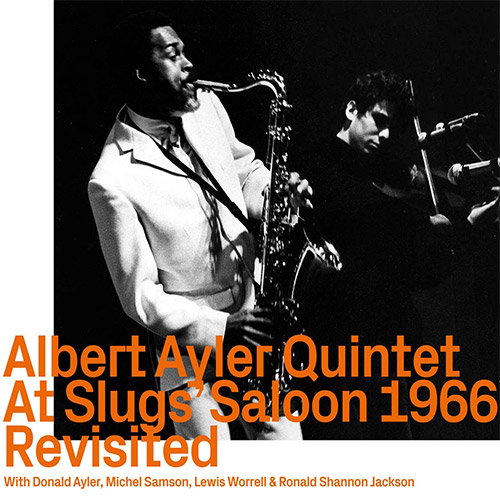

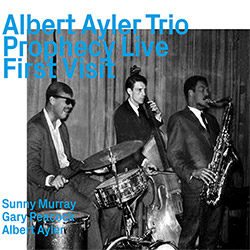

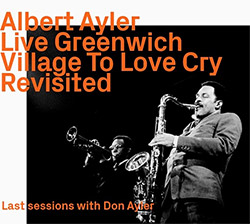


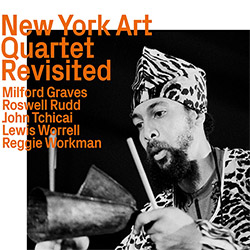
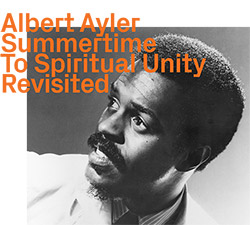
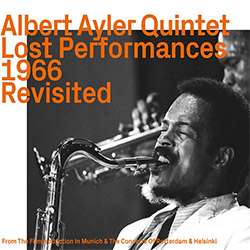
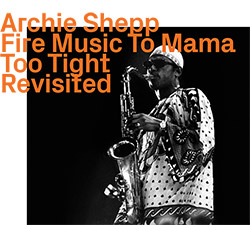
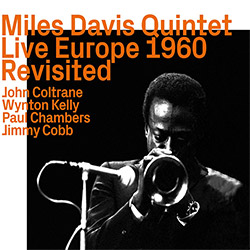


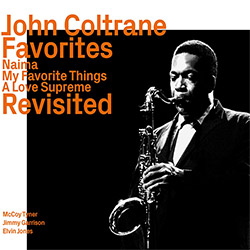





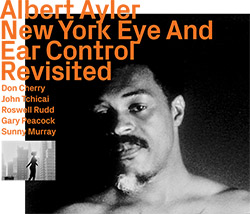
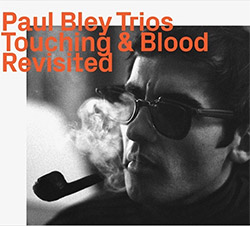


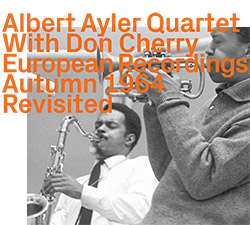
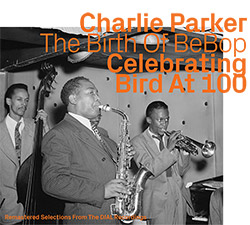
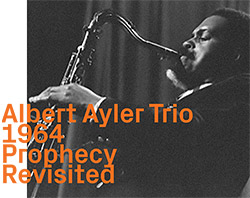










![Deupree, Jerome / Sylvie Courvoisier / Lester St. Louis / Joe Morris: Canyon [2 CDs]](https://www.teuthida.com/productImages/misc4/36404.jpg)


![Eternities: Rides Again [CASSETTE]](https://www.teuthida.com/productImages/misc4/36247.jpg)

![Lopez, Francisco: Untitled (2021-2022) [2 CDs]](https://www.teuthida.com/productImages/misc4/36438.jpg)




![Eventless Plot | Haarvol: The Subliminal Paths [CASSETTE + DOWNLOAD]](https://www.teuthida.com/productImages/misc4/36232.jpg)












![Eventless Plot | Francesco Covarino: Methexis [CASSETTE + DOWNLOAD]](https://www.teuthida.com/productImages/misc4/36231.jpg)



![Das B (Mazen Kerbaj / Mike Majkowski / Magda Mayas / Tony Buck): Love [VINYL]](https://www.teuthida.com/productImages/misc4/36329.jpg)



![Hemphill Stringtet, The: Plays the Music of Julius Hemphill [VINYL]](https://www.teuthida.com/productImages/misc4/36409.jpg)



![Halvorson, Mary Septet: Illusionary Sea [2 LPS]](https://www.teuthida.com/productImages/misc4/17952.jpg)






![Money : Money 2 [2 CDs]](https://www.teuthida.com/productImages/misc4/35894.jpg)




![Klinga, Erik: Elusive Shimmer [VINYL]](https://www.teuthida.com/productImages/misc4/36258.jpg)
![CHANGES TO blind (Phil Zampino): Volume 9 - I Wave on a Fine Vile Mist [CD + DOWNLOAD]](https://www.teuthida.com/productImages/misc4/36061.jpg)

![Wallmart / Rubbish: Asset Protection [split CD]](https://www.teuthida.com/productImages/misc4/35900.jpg)


![+Dog+: The Family Music Book Vol. 5 [2 CDs]](https://www.teuthida.com/productImages/misc4/35897.jpg)
![Kuvveti, Deli : Kuslar Soyledi [CASSETTE w/ DOWNLOAD]](https://www.teuthida.com/productImages/misc4/36107.jpg)

![Nakayama, Tetsuya: Edo Wan [CASSETTE w/ DOWNLOAD]](https://www.teuthida.com/productImages/misc4/36105.jpg)




![Yiyuan, Liang / Li Daiguo: Sonic Talismans [VINYL]](https://www.teuthida.com/productImages/misc4/35957.jpg)
![Brown, Dan / Dan Reynolds: Live At The Grange Hall [unauthorized][CASSETTE]](https://www.teuthida.com/productImages/misc4/36245.jpg)








![Palestine, Charlemagne / Seppe Gebruers: Beyondddddd The Notessssss [VINYL]](https://www.teuthida.com/productImages/misc4/36206.jpg)
![Palestine, Charlemagne / Seppe Gebruers: Beyondddddd The Notessssss [NEON GREEN VINYL]](https://www.teuthida.com/productImages/misc4/36207.jpg)

![Laubrock, Ingrid: Purposing The Air [2 CDs]](https://www.teuthida.com/productImages/misc4/35639.jpg)

![Yoko, Ono / The Great Learning Orchestra: Selected Recordings From Grapefruit [2 CDs]](https://www.teuthida.com/productImages/misc4/35841.jpg)









![Zorn, John / JACK Quartet: The Complete String Quartets [2 CDs]](https://www.teuthida.com/productImages/misc4/35609.jpg)

![Lonsdale, Eden: Dawnings [2 CDs]](https://www.teuthida.com/productImages/misc4/35480.jpg)



![Sorry For Laughing (G. Whitlow / M. Bates / Dave-Id / E. Ka-Spel): Rain Flowers [2 CDS]](https://www.teuthida.com/productImages/misc4/35985.jpg)

![Rolando, Tommaso / Andy Moor : Biscotti [CASSETTE w/ DOWNLOADS]](https://www.teuthida.com/productImages/misc4/36106.jpg)


![Electric Bird Noise / Derek Roddy: 8-10-22 [CD EP]](https://www.teuthida.com/productImages/misc4/35970.jpg)








![Elephant9 : Mythical River [VINYL]](https://www.teuthida.com/productImages/misc4/34624.jpg)



![Elephant9 with Terje Rypdal: Catching Fire [VINYL 2 LPs]](https://www.teuthida.com/productImages/misc4/35355.jpg)
![Deerlady (Obomsawin, Mali / Magdalena Abrego): Greatest Hits [VINYL]](https://www.teuthida.com/productImages/misc4/34876.jpg)







![Surplus 1980: Illusion of Consistency [CD]](https://www.teuthida.com/productImages/misc4/35069.jpg)
![Staiano, Moe: Away Towards the Light [VINYL + DOWNLOAD]](https://www.teuthida.com/productImages/misc4/35037.jpg)
![Coley, Byron: Dating Tips for Touring Bands [VINYL]](https://www.teuthida.com/productImages/misc4/17906.jpg)

![Lost Kisses: My Life is Sad & Funny [DVD]](https://www.teuthida.com/productImages/misc4/lostKissesDVD.jpg)